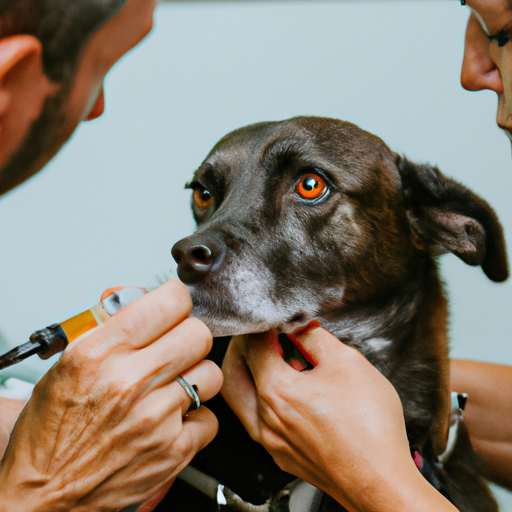Understanding Rabies Vaccination for Dogs
As a caregiver, your furry friend’s health is of high importance. You’re not just a pet owner, you’re a parent of sorts, the guardian of a life. In this role, one of the most critical vaccines to keep an eye on is the rabies vaccine. You might ask, “Why is it so important?” Rabies, a deadly disease that can affect both pets and humans, is preventable with proper vaccination.
Rabies vaccination for dogs is not just a recommendation, it’s a legal requirement in many states. The frequency of the vaccine varies based on several factors including your dog’s age, the local laws, and the specific vaccine used.
Frequency of Rabies Vaccination
The first rabies vaccine is typically given to puppies at around 3-6 months of age. The initial vaccine generally provides immunity for one year. After this first vaccine, the schedule changes:
-
One-Year Vaccine: If a one-year vaccine is used, your dog needs to be vaccinated every year.
-
Three-Year Vaccine: If a three-year vaccine is used, your dog needs to be vaccinated every three years.
It’s crucial that you know which type of vaccine your dog has received. Below is a table for quick reference:
| Vaccine Type | Frequency |
|---|---|
| One-Year | Every Year |
| Three-Year | Every Three Years |
The Importance of Timely Vaccination
You may wonder, “Can’t I just skip a year?” The answer is a resounding “No!” Rabies is a serious, fatal disease. In almost all cases, by the time symptoms are visible, the disease is fatal. Timely vaccination not only keeps your dog safe but also protects you and your family.
Vaccination Side Effects
While vaccinations are crucial, it’s equally important to be aware of possible side effects. Most dogs don’t experience any adverse effects. However, some dogs may experience mild symptoms such as:
- Fever
- Loss of appetite
- Mild swelling at the injection site
In rare cases, dogs may have an allergic reaction. If you notice difficulty breathing, severe vomiting, or swelling of the face, contact your vet immediately.
FAQ Section
Q: Can I vaccinate my dog at home?
A: While some vaccines can be given at home, the rabies vaccine must be administered by a licensed veterinarian.
Q: My dog stays indoors, does he still need a rabies vaccine?
A: Yes, even indoor dogs need to be vaccinated. Rabies can be transmitted through a bite from an infected animal, and bats, a common carrier of rabies, can find their way into homes.
Q: Can my dog get rabies even after vaccination?
A: While rare, it is possible for a dog to contract rabies after vaccination, particularly if they are not up-to-date with their shots.
In conclusion, as a caregiver, the safety of your pet is in your hands. Regular and timely rabies vaccination is a crucial part of that responsibility. Keep your pet, your family, and your community safe by staying diligent about your dog’s vaccination schedule.



